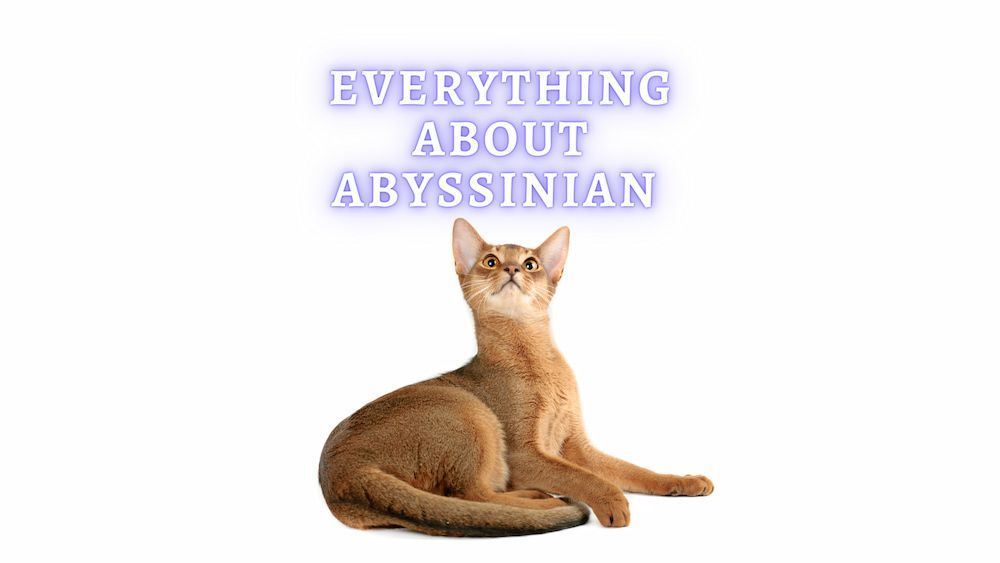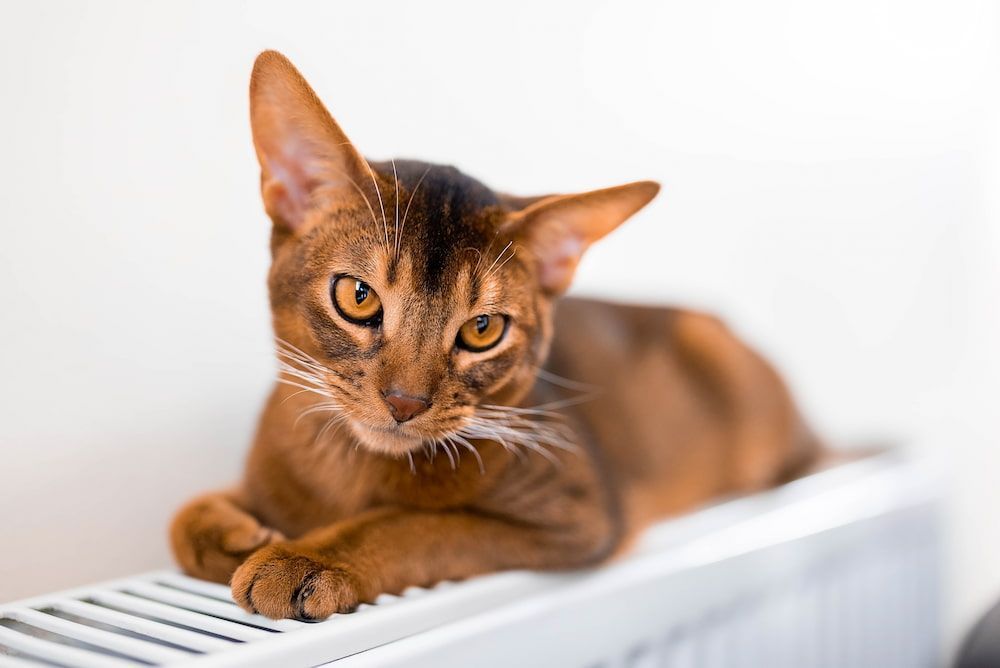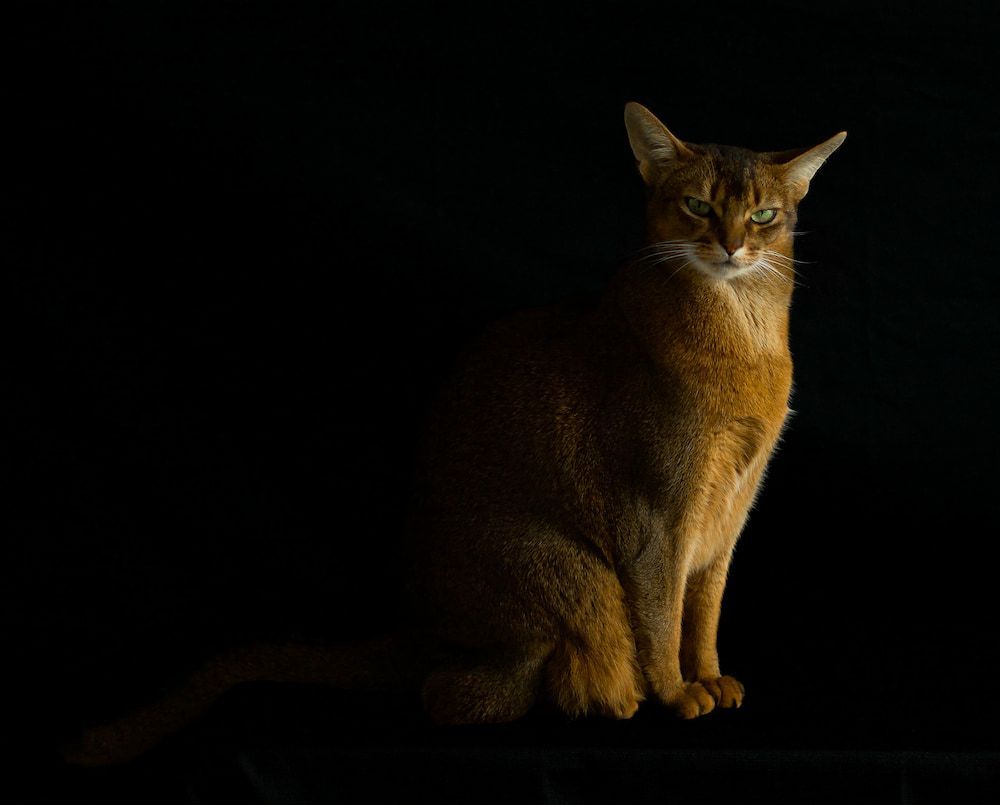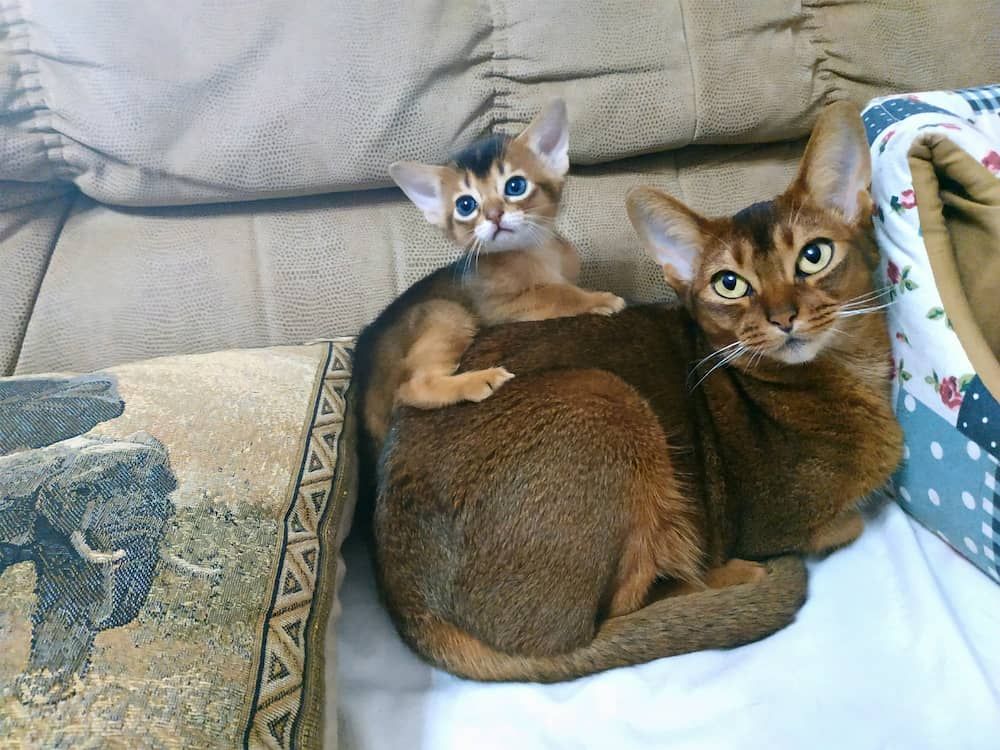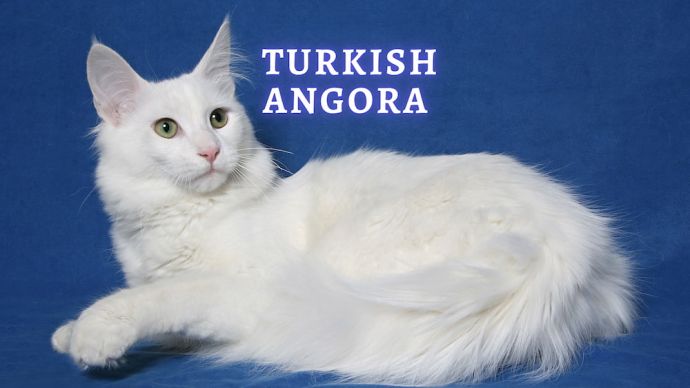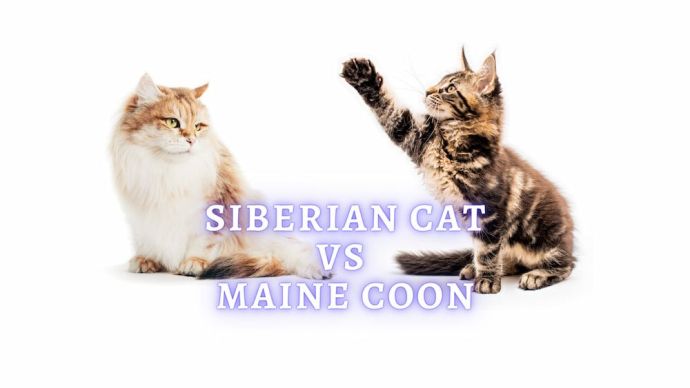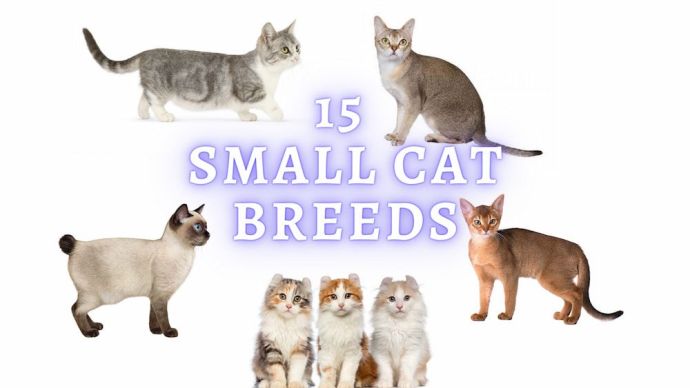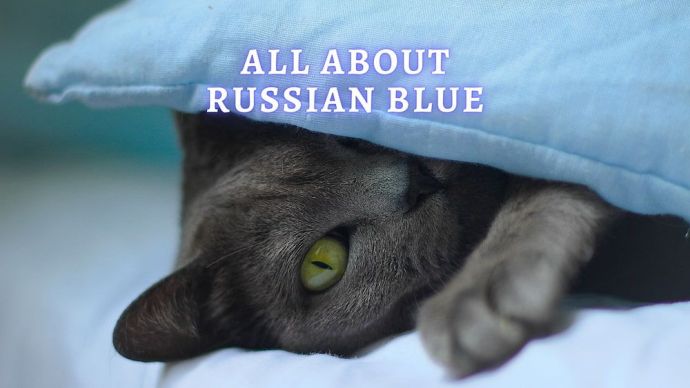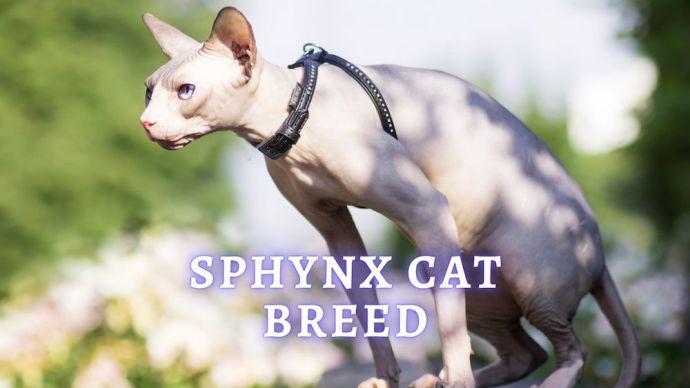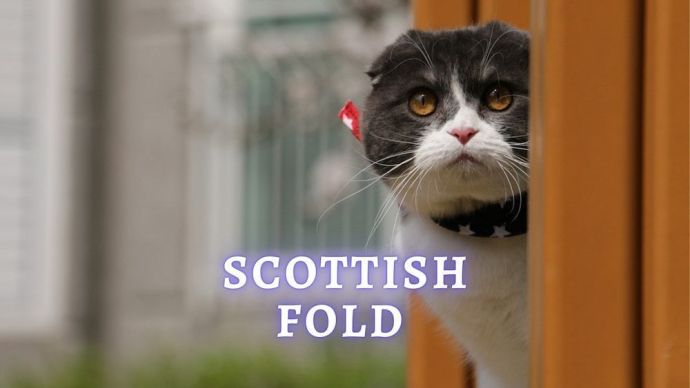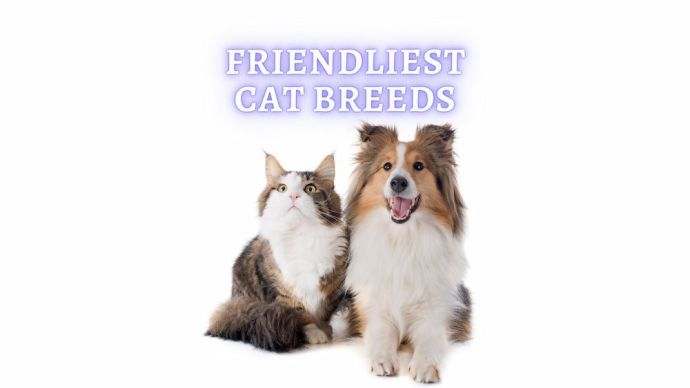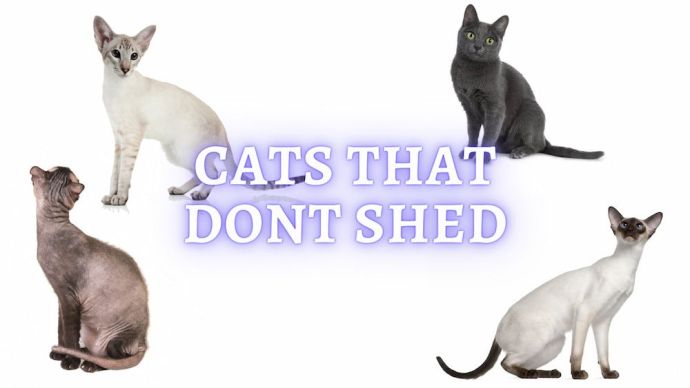Abyssinian Cat: Everything You Need to Know About Abyssinian
Written by:
Author: Carol Young
Carol has worked in specialty, emergency, mixed animal and general veterinary practices, and enjoys all aspects of veterinary medicine. Her special areas of interest include anesthesia, critical care, emergency, dentistry, internal medicine and small animal nutrition.
View all 62 articlesLearn about our editorial process and veterinary review board.
Viewed: 81
Updated on: 11/10/2022
Of the cat breeds, the Abyssinian, also known as the “Aby” is a sleek-looking, short-hair, intelligent, and very curious breed of cat. This variety is a medium-sized cat known for its distinctive “ticked” tabby coat, in which discrete hairs are alternately banded with different colors, resulting in a very distinctive appearance. If you are looking to adopt or purchase an “Aby” there are several things you may want to know before adding one to your home.
Characteristics
What gives the Abyssinian its unique look and appearance is its wedge-shaped head with broad ears and almond-shaped eyes that come in shades of gold or green. The body build is slim and sleek with long legs, as well as muscular and athletic. The ears of the Abyssinian are large, tufted, and tilted forward, giving the breed a very attentive and alert look.
The hair coat of the Abyssinian is short, making it easy to groom, and comes in a variety of colors. The typical colors are a brownish tint known as “usual” or “ruddy,” although they also come in sorrel, fawn, or blue. There is also a variety of Silver Abyssinians, which come in black silver, fawn silver, sorrel silver, and blue silver. Rarer colors are cream, tortoiseshell, red, chocolate, and lilac.
The coloring of the Abyssinian is most distinctive. The fur has bands of color on each hair, and the overall coat looks darker as it follows the line of the spine. The hair color softens a bit under the neck, the belly, and on the insides of the legs.
Breed History
If you have ever seen an Abyssinian or a photo of one, you may think that this breed originated from Ancient Egypt as it looks a lot like ancient cat sculptures of that era. Although many think that Abyssinian cats traces their roots to the Nile Valley, the breed was developed in Great Britain in the 1860s. Following a military expedition to Abyssinia (now known as Ethiopia), Lt. General Robert Napier brought a female cat named Zulu back to England, and she became the foundation parent of the breed.
Lt. General Napier must have been impressed with Zulu’s unique ticking pattern and may have reminded him of the camouflage pattern on the coat of a wild rabbit. After she arrived in England, she was bred to other cats that had a similar-looking hair coat, and as a result, the Abyssinian breed was born.
Genetic testing of the breed reveals that it has roots along the coast of the Indian Ocean and parts of Southeast Asia. The Siamese, Burmese, and Russian Blue are closely related to the Abyssinian. In 1935 Abyssinians were first bred in the United States, and today the “Aby” is one of the most popular cat breeds registered by the Cat Fanciers Association.
Interesting Facts
- The Aby is a very good student and can learn to do tricks.
- Aby was a sensation at London’s famed Crystal Palace venue in 1871, in which Harper’s Magazine creatively wrote that the feline was thought to have been [1] “captured in the late Abyssinian War.” As a result, the Aby is also known as the crystal palace cat.
- The Abyssinian can be trained to walk on a leash.
- In the late 1960s, feline leukemia virus almost wiped out the breed, but thanks to breeding practices in Europe and the US, the breed was brought back from the brink of extinction.
- In 2007, a science team used DNA from a four-year-old Abyssinian cat named Cinnamon to sequence the first draft genome [2] for the domestic cat. The research goal was to find out about more than two hundred diseases that affect both cats and humans.
Personality
The Abyssinian is a very energetic breed, one of the more active cats, and is always in motion, although she will take a nap break now and then and cuddle up next to you on the couch or in bed. Most people characterize the Aby as an independent cat, but she does best with other cats and pets rather than living alone. Abyssinians are very affectionate and social, love attention from their humans, and get along well with cat-friendly pets, even birds.
For a social cat, the Aby is perfectly fine entertaining herself with toys and puzzles but also loves to play with their human parents and/or fellow pets. Because the Aby is high-energy and very intelligent, she will need to be kept busy, so it’s important to keep her entertained with puzzle toys to stimulate brain power or treat puzzles to release treats. You can also clicker train her to run agility courses. Enrichment is vital to this breed, so consider placing a bird feeder by your window for viewing entertainment, or getting a cat tree and/or multiple cat toys to keep her occupied.
The Abyssinian meow is soft and quiet, and they will reward your attention with cuddles and purrs. However, if you’re looking for a mellow gentle lap cat, the Abyssinian may not be the best choice because she is so very active. If you are looking for an intelligent cat who loves to play and interact with people, then the Aby may be just the right feline for you.
READ MORE: Friendliest Cat Breeds
Activity
As mentioned above the Abyssinian is a very active cat, and loves to romp and play with other cats, pets, and their humans. For this reason, the Aby does best when she can “get her wiggles out” by having plenty of toys and things to keep her active and happy. Cat trees with scratching posts and toys are a great idea, as are areas in the house where she can get up high to watch what’s going on in the house, or to observe birds chirping outside of the window.
There is one sure thing, the Abyssinian is not a couch potato but is always on the move and ready for adventure. Her natural athletic ability and curiosity result in a constantly exploring, jumping, and climbing breed, so it’s important to offer the Aby plenty of ways to burn off energy, whether playing games or taking her a walk on a leash.
It wouldn’t be unusual to find an Abyssinian watching family life from the top of a refrigerator or a bookcase or swatting at imaginary critters or invading insects in the household. Abyssinians love to perch on windowsills and keep you company by perching on your desk or computer.
Lifespan
The Abyssinian is known for her longevity; many can live up to 15 years or even more. The Aby is a relatively healthy breed, can live a happy and long life when fed a proper, nutritious diet, and is scheduled for regular veterinary health checks.
With most cats, Abyssinians can be prone to certain genetic diseases such as gingivitis (inflammation of the gingiva around the teeth), patellar luxation (a hereditary dislocation of the kneecaps), or progressive retinal atrophy (a degenerative eye disease). They can also develop a hereditary condition called pyruvate kinase deficiency. Pyruvate kinase is an enzyme needed for energy metabolism in red blood cells; in cases where this enzyme is not present or low, cats can develop anemia. For this reason, it’s vital to keep your Aby up to date on veterinary health exams and vaccinations.
READ MORE: Orange Cat Breeds
Care
Since Aby’s have short hair coats, grooming is a snap. Weekly grooming, however, is essential and can be done weekly with a stainless steel comb to remove dead hair and keep her coat shiny and free of mats. Regular nail trimming is also essential and should be done every two to four weeks or as needed. Since Abyssinians are prone to periodontal disease, regular tooth brushing with a veterinarian-approved pet toothpaste can help reduce the progression of this disease. Of course, it’s also important to schedule regular veterinary exams and dental cleanings.
Price
Suppose you are looking to buy an Abyssinian kitten from a breeder. In that case, the cost will depend on the type, markings, and bloodlines as distinguished by Distinguished Merit parentage (DM), Grand Champion (GC), or National or Regional winning parentage (NW or RW). The Distinguished Merit title is achieved by the mother producing five Grand Champions or DM offspring or the father producing 15 CFA Grand Champions or DM offspring.
Depending on the breeder and the bloodline, an Aby kitten can cost between $500-$1,200. If you adopt from a rescue or a shelter, the cost could be considerably lower.
Breeders
As always, if you are considering purchasing a kitten from a breeder, it’s important to do your homework and find a reputable breeder. You can check out several Abyssinian websites for breeder recommendations, such as the Abyssinian Breed Council,[3] the Cat Fanciers Association,[1] the Abyssinian Cat Club of America,[4] The International Cat Association,[5] the Fanciers Breeder Referral List,[6] and the American Cat Fanciers Association[7].
Breeders typically make Aby kittens available between twelve and sixteen weeks of age. At this time, they have had their basic vaccines and developed the physical and social stability needed for a new environment. If going through a breeder, choose one who has performed the health certifications necessary to screen out any genetic health problems and one who has raised kittens in the home in a warm, family environment. Kittens who are isolated can become fearful and skittish and may be difficult to socialize later in life.
Backyard breeders are out there, so make sure that you do your research, check out the breeding facility, and ask the right questions regarding health and bloodlines to reduce the chances of purchasing a sick kitten or one that may develop genetic issues down the line. As always, don’t forget to consult your veterinarian. Your veterinarian may be able to refer you to a reputable breeder, breed rescue organization, or another reliable source for healthy kittens.
Adoption and Rescue
Breeders are not the only way to find an Aby, and you may want to adopt one that needs a loving home from a rescue or a shelter. Although Abyssinian kittens may not show up in shelters, you may find an adult Aby. Resources to check out are Petfinder[8] and Adopt-a-Pet[9].
Once you’ve found your forever Aby, make sure to schedule an exam with your veterinarian to detect any potential health problems and to set up a regular schedule of health checkups.
Conclusions
If you are looking for a unique cat with plenty of personality and energy, then the Abyssinian is the feline for you. Of all of the cats in the cat kingdom, the Aby is a great family cat and gets along with other pets and cats, but be prepared to offer plenty of entertainment, attention, and playtime to keep this intelligent breed healthy and occupied.
Article Sources:
- “Abyssinian.” The Cat Fanciers’ Association, Inc, cfa.org/abyssinian/.
- Radio, St. “Scientists Sequence DNA of Missouri Cat.” STLPR, 31 Jan. 2019, news.stlpublicradio.org/other/2007-11-29/scientists-sequence-dna-of-missouri-cat.
- CFA Abyssinian Breed Council. abyssinianbc.org/.
- “About Abyssinians.” Abyworld, abyworld.com/aboutabys.aspx.
- “The Abyssinian Breed.” TICA, tica.org/breeds/.
- “Abyssinian Page.” Fanciers Breeder Referral List, breedlist.com.
- American Cat Fanciers Association. acfacat.com/abyssinian.htm.
- “Urgent Need for Pet Adoption – Find Dogs & Cats & More.” Petfinder, 8 Feb. 2022, petfinder.com/.
- “Adopt a Dog or Cat Today! Search for Local Pets in Need of a Home.” Adopt a Pet, adoptapet.com/.
 Cat Care Why Does My Cat Attack My Legs? 10 Reasons Why and What To Do About It (Vet-Approved Advice)
Cat Care Why Does My Cat Attack My Legs? 10 Reasons Why and What To Do About It (Vet-Approved Advice) - 46013
- 21
 Cat Veterinary Tips Cat Stomach Gurgling: Vet Advice on Why is Your Cat Stomach Gurgling?
Cat Veterinary Tips Cat Stomach Gurgling: Vet Advice on Why is Your Cat Stomach Gurgling? - 36469
- 4
 Cat Veterinary Tips My Cat Lost its Voice: Can Cats get Laryngitis? (Vet Advice)
Cat Veterinary Tips My Cat Lost its Voice: Can Cats get Laryngitis? (Vet Advice) - 23554
- 13









